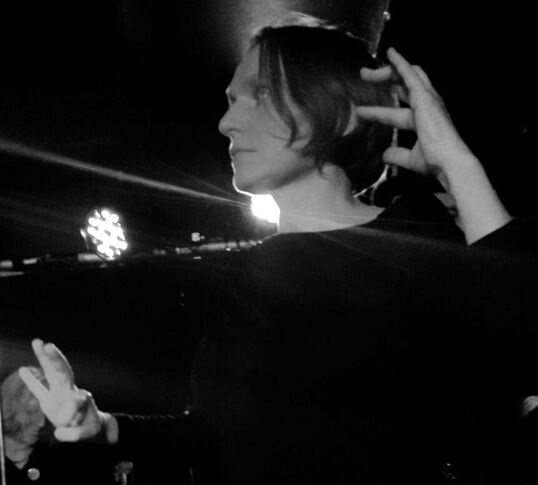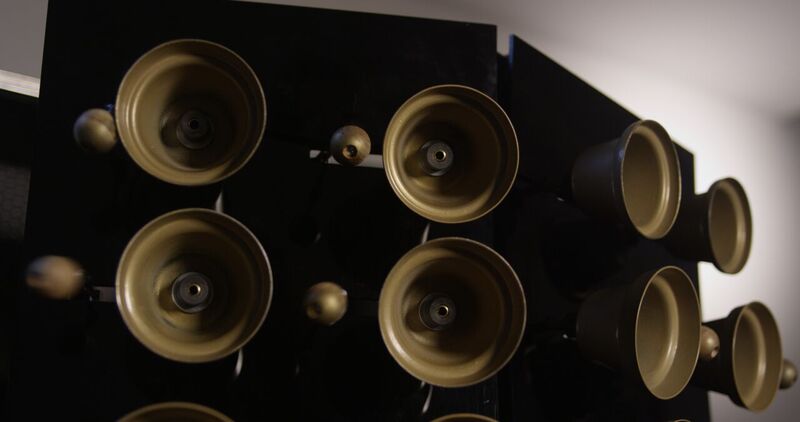
Throughout the month of March, in support of International Women's Day 2018, Sound and Music is showcasing incredibly talented women in music. Today, we recognise Sarah Angliss.
Sarah Angliss- “I work with notated music, Max patches, found sounds, robotics - I think of it all as composition.”
Turning sound inside and out, Sarah Angliss is an electroacoustic composer who specialises in the manipulation of sound through layering and electronics. Beginning her career in Trinity College of Music, Sarah continued her obsession with sound by studying for an electroacoustic engineering degree.
We spoke to Sarah about how she become involved in such an interesting strand of composition, as well as the challenges she has faced in doing so. Here is what she had to say:
What was your route into composing?
It’s something I’ve always done - some of my earliest sound experiments were as a kid, taping my own imaginary radio shows about trips to the moon. I was lucky enough as a teenager to be given a full scholarship to Saturday lessons at Trinity College of Music - all paid for by the Bedfordshire County Music Service. Every week we’d have extemporisation sessions and a class where we had to bring in a new composition - two activities I loved. Everyone expected me to go to music college but I actually opted to study electroacoustics, an engineering degree, as I knew I wanted to turn sound inside out. I struggled in the early 90s to find a home for my ideas - as I was an engineer, I found it hard to convince people I was also a bona fide musician. It took another fifteen years (and some advances in cheap tech) for me to gather my own kit and grow the confidence to work independently as an electroacoustic composer.
Where do you get your inspiration from?
It’s so variable and tends to be accidental - triggered by anything from a story to a sound, an object, a chord or a striking physical gesture juxtaposed with an emotion. Once an idea is in my head, I tend to obsess about it until I’ve created something. I’m drawn to sounds that get under the skin, sounds that are sly in the way they do this, sounds that are introspective, that you have to lean into. I obsess about the inside of sound. I’m far more inspired by the thought of layering of sounds rather than notes, even when I’m writing notated music.
Do you think the word composer adequately reflects you an artist? If not, what word does?
It took me until my late thirties to feel I could identify as a composer. So it’s now a term I’ll use deliberately, preferring it to sound artist. I work with notated music, Max patches, found sounds, robotics - I think of it all as composition.
Tell us a bit about your experiences a composer; have you faced any challenges?
I think I go through a similar arc to many other composers I know - lurching from excitement, obsession, nagging terror and giddy optimism with the latest project I’m on. I work extensively with electronics so Bjork’s comments about certain journalists’ attitudes to her studio collaborations resonated with me. These days, I’m quick and fearless to correct people if they assume I’m relying on others’ technical expertise.
Sarah Angliss' British Music Collection records can be found online via here.
Photo Credits: Lucy Cage
